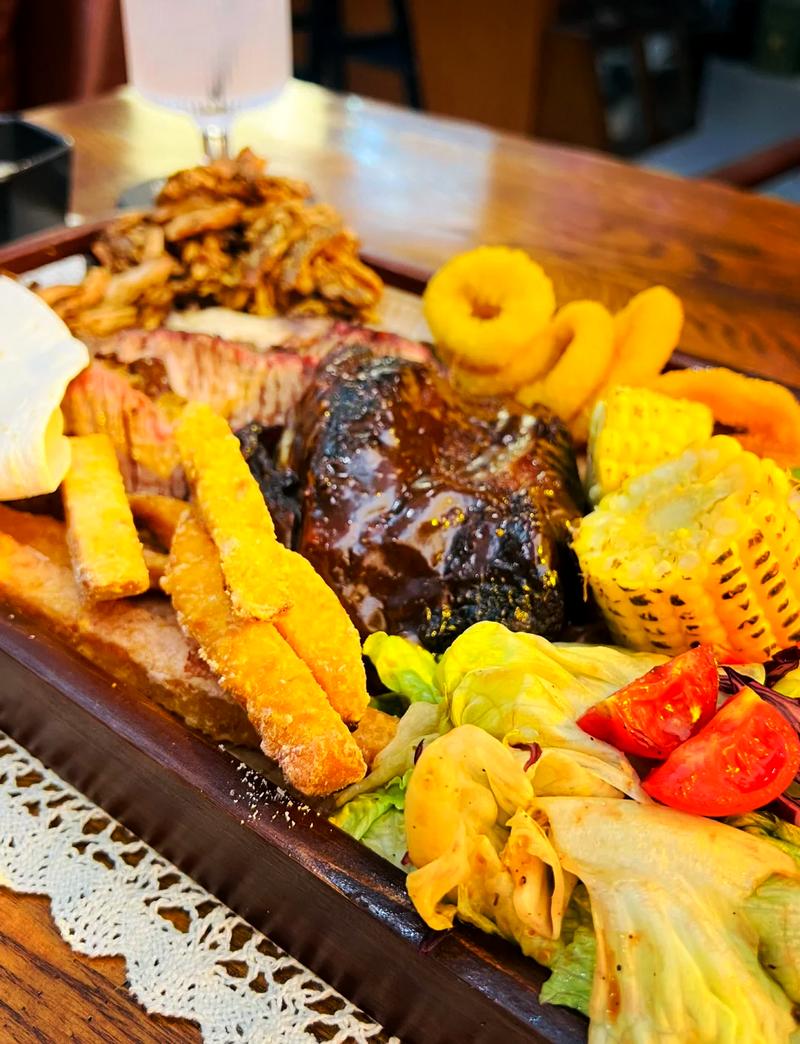Understanding the Market
Before diving into the world of selling BBQ plates, it’s crucial to understand the market you’re entering. Research local trends, preferences, and the competition. This will help you tailor your offerings to meet the demands of your target audience.
Choosing the Right Location
Your location can significantly impact your success. Look for areas with high foot traffic, such as busy streets, shopping centers, or near popular attractions. Consider renting a space in a food court or setting up a mobile food truck if you prefer a more flexible option.

Creating Your Menu
Offer a variety of BBQ plates to cater to different tastes. Consider including classics like pulled pork, brisket, and ribs, as well as unique options like smoked chicken or vegetarian dishes. Make sure your menu is visually appealing and easy to read.
Quality Ingredients and Cooking Techniques
The key to a successful BBQ business is using high-quality ingredients and mastering the cooking techniques. Invest in fresh, locally sourced meats and vegetables. Experiment with different smoking woods and marinades to create mouthwatering flavors. Attend BBQ workshops or seek advice from experienced pitmasters to refine your skills.
Branding and Presentation
Branding is essential for creating a memorable experience. Design a catchy name for your BBQ business and create a consistent visual identity, including a logo, menu design, and signage. Use vibrant colors and rustic decor to evoke a BBQ atmosphere. Ensure your food is presented neatly and attractively to entice customers.
Pricing Strategy
Develop a pricing strategy that covers your costs while remaining competitive. Consider factors like ingredient costs, labor, and overhead. Offer value by including side dishes, desserts, or drinks with your BBQ plates. You can also create special promotions or discounts to attract new customers.

Marketing and Promotion
Utilize various marketing channels to promote your BBQ business. Create a social media presence on platforms like Instagram, Facebook, and Twitter to share photos of your delicious dishes and engage with customers. Offer free samples at local events or collaborate with other businesses for cross-promotion. Consider distributing flyers or posters in your chosen location to increase visibility.
Customer Service
Providing exceptional customer service is crucial for building a loyal customer base. Train your staff to be friendly, knowledgeable, and attentive. Encourage feedback and make adjustments to your menu or service based on customer preferences. Consider offering loyalty programs or discounts for repeat customers.
Expanding Your Business
Once you’ve established a solid customer base, consider expanding your business. You can open additional locations, offer catering services, or even create a line of BBQ sauces or spices for sale. Attend food festivals or events to showcase your offerings and attract new customers.
Table: Cost Breakdown
| Cost Category | Estimated Cost |
|---|---|
| Lease or Rent | $1,500 – $3,000 per month |
| Equipment and Supplies | $5,000 – $10,000 |
| Food Ingredients | $500 – $1,000 per week |
| Marketing and Advertising | $200 – $500 per month |
| Staff Wages | $1,000 – $2,000 per week |
| Utilities and Overhead | $300 – $500 per month |
By following these steps and continuously refining your business, you can successfully make money selling BBQ plates. Remember to stay passionate about your craft and always strive to provide the best possible experience for your customers.
